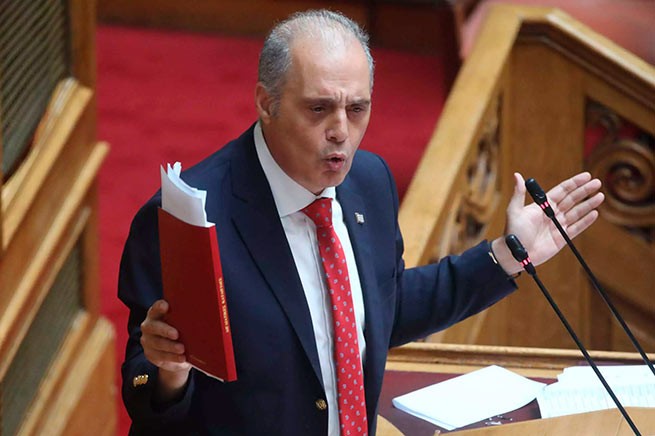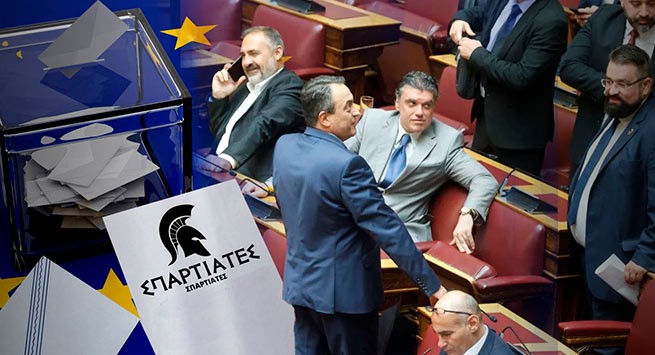The Prime Minister of Greece announced a new national program to support the population and counteract the consequences of the war and the “explosion” of imported energy prices at yesterday’s cabinet meeting. Mr. Mitsotakis said that “intervention in the field of wholesale electricity prices will be declared valid from June.”
The bills that households and businesses are receiving are staggering. The government intends to implement the plan by setting a “price ceiling” on the wholesale electricity market.
As writes imerisia.grthe prevailing scenario of the mechanism provides for the establishment of a cost ceiling for each technology separately (natural gas, lignite, RES, etc.), since they are not the same.
The difference in cost that exceeds the limit will be “given away” to producers in the form of a subsidy. What matters is the ceiling that will be included for natural gas.
The government’s goal is that with caps in place, the wholesale price of electricity (the next day’s clearing price) will approach 100 euros per MWh. Today it is within 250 euros per megawatt-hour.
In this model, it is necessary that wholesale prices reach the level of the average level of last summer, as a result of which current tariffs are reduced by about 30% – 50%, respectively. This formula also “cuts” the adjustment clause that worries households and businesses.
Example, prepared for the publication of “Ημερησία” allazorevma.gr: a sharp decrease in the price on the account after the threshold was established is obvious.
Residential consumption 375 kWh per month. For March, when the average wholesale price was EUR 272.68/MWh, EUR 107 is payable. Consumption reached 38.86 euros (energy and flat fee) and the adjustment clause reached 108 euros. Without the state subsidy of 40 euros, the final amount that the consumer would have to pay would be about 147 euros, of which only about 1/5 would be for electricity consumption.
For June and with the wholesale price ceiling in question in the amount of 100 €/MWh:
- with the same consumption, the bill is reduced to 70 euros,
- with a zero subsidy and an adjustment clause is reduced to 31 euros,
- energy and fixed fee remain the same at 38.86 euros.
Source: allazorevma.gr
Another example
Domestic consumption 600 kW per month. For March, when the average wholesale price was EUR 272.68/MWh, EUR 195.84 is payable. Consumption reached 62.17 euros (energy and fixed fee) and the adjustment clause reached 173.6 euros. Without the state subsidy of 40 euros, the final amount that the consumer would have to pay would be almost 236 euros, of which only about 1/5 would be for electricity consumption.
For June and with the wholesale price ceiling in question in the amount of 100 €/MWh:
- with the same consumption, the bill is reduced to 113 euros,
- with a zero subsidy and an adjustment clause is reduced to 51 euros,
- energy and fixed fee remain the same at 62.17 euros.
The big problem for the implementation of this mechanism is the high budgetary costs, which are estimated to reach or even exceed 6 billion euros. Especially now, when the energy war is in full swing, and no one can predict where gas prices will go next season.
Greek proposal to the European Commission
A similar model has been proposed to the commission by the Greek government since the end of February, for adoption at the European level. In a letter sent by the Minister of Environment and Energy, Kostas Skrekas, with proposals from Greece to control electricity costs, a “ceiling” (restrictions on the increase in wholesale electricity prices) was included.
In particular, the proposal provided that the market would continue to apply existing price cap rules, but Member States would set ceilings for each energy generation technology. The fuel cost for each power generation technology will then be calculated, and in case the fuel cost exceeds the maximum compensation, the producer receives the difference.
The states will subsidize electricity producers through the Energy Crisis Solidarity Mechanism, also proposed by the Greek government, through which member states will be able to receive loans at low interest rates that will not be taken into account in the budget deficit and public debt.






More Stories
Turkish tourists choose Samos for their holidays
Food: Testing for Pesticides
Highway E65: how long does the Athens-Kalambaka journey take, toll